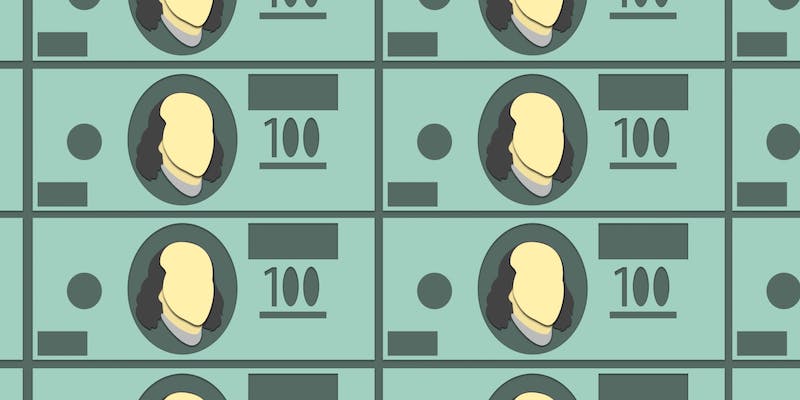Unlocking the Secrets of FHA Loans
Nov 21, 2023 By Susan Kelly
Are you thinking about buying a home or refinancing your existing mortgage? If so, you've probably heard about FHA Loans. They're a popular choice for many homebuyers and homeowners, thanks to their flexible requirements and competitive Interest Rates.
In this article, we'll dive into the world of FHA Loans, explore their requirements, weigh the advantages and disadvantages, and aid you in determining whether an FHA loan aligns with your financial needs. Plus, we'll provide you with the most up-to-date information on current FHA loan rates.
What Is an FHA Loan?
Starting with the basics, FHA is an acronym for the Federal Housing Administration, a government agency operating under the Department of Housing and Urban Development. FHA Loans are mortgages backed by this agency, designed with the primary goal of increasing homeownership accessibility.
FHA Loans are known for their low Down Payment requirements, which is a big draw for many first-time homebuyers. To give you an idea, with a conventional loan, you'd typically need to put down 20% of the home's purchase price. In contrast, FHA Loans often require as little as 3.5% down. This decreased down payment offers a substantial advantage, particularly if you're dealing with a limited budget.
FHA Loan Requirements
FHA Loans offer a path to homeownership for those who might not meet the stringent requirements of conventional mortgages. However, there are specific criteria you must still meet to qualify for an FHA loan. Here are the key requirements:
Minimum Credit Score
To meet the eligibility criteria for an FHA loan, a minimum credit score of 580 is necessary. However, if your score is below 580, you might still qualify, but your Down Payment requirement will increase to 10%. A higher Credit Score can help you secure a lower interest rate.
Down Payment

As previously stated, the down payment for an FHA loan can be as minimal as 3.5% of the total purchase price. This is a major advantage for those who don't have significant savings.
Debt-to-Income Ratio
Your debt-to-income (DTI) ratio is an essential factor in the approval process. Lenders want to ensure that your monthly debt payments, including your mortgage, don't exceed a certain percentage of your income. In general, your DTI should be below 43%.
Employment and Income
Lenders will review your employment history and income stability. Having a steady job and income source will make you a more attractive candidate for an FHA loan.
Property Requirements
The property you intend to purchase must meet specific FHA guidelines. These guidelines cover factors like the property's condition, safety, and occupancy status.
Pros and Cons of FHA Loans
Like any financial product, FHA Loans have their advantages and disadvantages. Let's break down what's great and not-so-great about them.
Pros of FHA Loans:
Lower Down Payment: The standout benefit of FHA Loans lies in their minimal down payment requirement.This makes homeownership more accessible to people with limited savings.
Competitive Interest Rates: FHA Loans frequently offer competitive interest rates, providing potential savings throughout your loan.
Flexible Credit Requirements: While a good Credit Score is beneficial, FHA Loans are more forgiving of lower Credit Scores, making them an option for those with less-than-perfect credit.
Streamlined Refinancing: If you currently hold an FHA loan, you have the opportunity to benefit from the FHA Streamline Refinance program. This makes it easier and more affordable to refinance your existing FHA loan.
Cons of FHA Loans:
Mortgage Insurance Premium (MIP): FHA Loans come with a downside: the mandatory inclusion of mortgage insurance premiums. These premiums protect the lender in case you default on the loan. While they make FHA Loans possible with a low Down Payment, they do increase your monthly costs.
Limited Loan Amount: FHA Loans have a maximum loan amount that varies by location. In high-cost areas, you may find that the FHA loan limit doesn't cover the full cost of the home you want to purchase.
Property Restrictions: The property you intend to buy must meet FHA guidelines, which may limit your choices. You'll need to ensure that the home is in good condition and meets safety standards.
Loan Limits: FHA loan limits vary by location, and they may not be sufficient for higher-priced homes in some areas.
Is an FHA Loan Right for You?

Now that you're well-versed in the world of FHA Loans, it's time to consider whether this is the right option for your homeownership or refinancing needs. Here are a few factors to think about:
Your Credit Score: If you have a good Credit Score (above 580), you might qualify for a conventional loan with a potentially lower interest rate. However, if your credit is less than stellar, an FHA loan could be the more accessible choice.
Down Payment Savings: Do you have substantial savings for a traditional 20% Down Payment, or would you prefer a lower Down Payment to keep more cash on hand? If the latter, an FHA loan is worth considering.
Property Choice: Consider whether the homes you're interested in meet FHA property requirements. If not, you might need to explore other financing options.
Future Plans: Think about your long-term plans. If you're considering a shorter-term stay in your home or anticipate refinancing in the near future, the competitive Interest Rates of FHA Loans can be a significant advantage.
Debt-to-Income Ratio: Review your financial situation and calculate your DTI ratio. If you're comfortably below 43%, it's a good sign that an FHA loan might be suitable for you.
Conclusion
Understanding the world of FHA Loans, encompassing their fundamentals, prerequisites, and the advantages and disadvantages they carry, equips you to make well-informed decisions in the realms of home buying or refinancing. The key is to evaluate your unique financial situation, goals, and the local housing market to determine if an FHA loan is the right choice for you.
So, when you're ready to take the next step in your homeownership journey, keep an eye on the current FHA loan rates to ensure you secure the best deal available. With the right information and a clear understanding of your financial needs, you'll be well on your way to making your homeownership dreams a reality.





